Before the North American colonies became “these United States,” colonial parents understood their divine mandate to early instruct their children. As descendants of the European reformers, who highly valued a “virtuous education,”[i] the colonials believed the education of their children was a generational duty to form the future and its leadership upon the foundation of Christ and His Word. Founding Father Samuel Adams wrote,
Let divines and philosophers, statesmen and patriots, unite their endeavors to renovate the age, by … educating their little boys and girls … and instructing them in the art of self-government, without which they never can act a wise part in the government of societies, great or small; in short of leading them in the study and practice of the exalted virtues of the Christian system.[ii]
Many families who sailed west were Calvinists, whom historians later referred to as “people of the Book.” Their pastors had taught them how to reason justly with the revelation of God’s Word in the civil realm. Geneva was Calvin’s great experiment in Christian civil government. He also focused on providing a quality Christian education for Geneva’s citizens, noting that an educated laity was essential for a strong church. Throughout the history of Christianity, wherever the Gospel has taken root, Christian education follows and literacy rises significantly with the reading of God’s Word.
Why there are no marginal notes in the King James Bible!
In 1620, out of concern for their children’s future, the Pilgrims departed Holland for America with the Geneva Bible under their arm. The Geneva Bible contains the marginal notes of the sixteenth century reformers who sought refuge in Geneva at that time. Those notes included commentary about civil government that so frightened King James I that he banned the Geneva Bible in England and commissioned his own translation, declaring, “There will be no marginal notes in my Bible!” Probably few users of the King James Bible are aware of this footnote in English history.
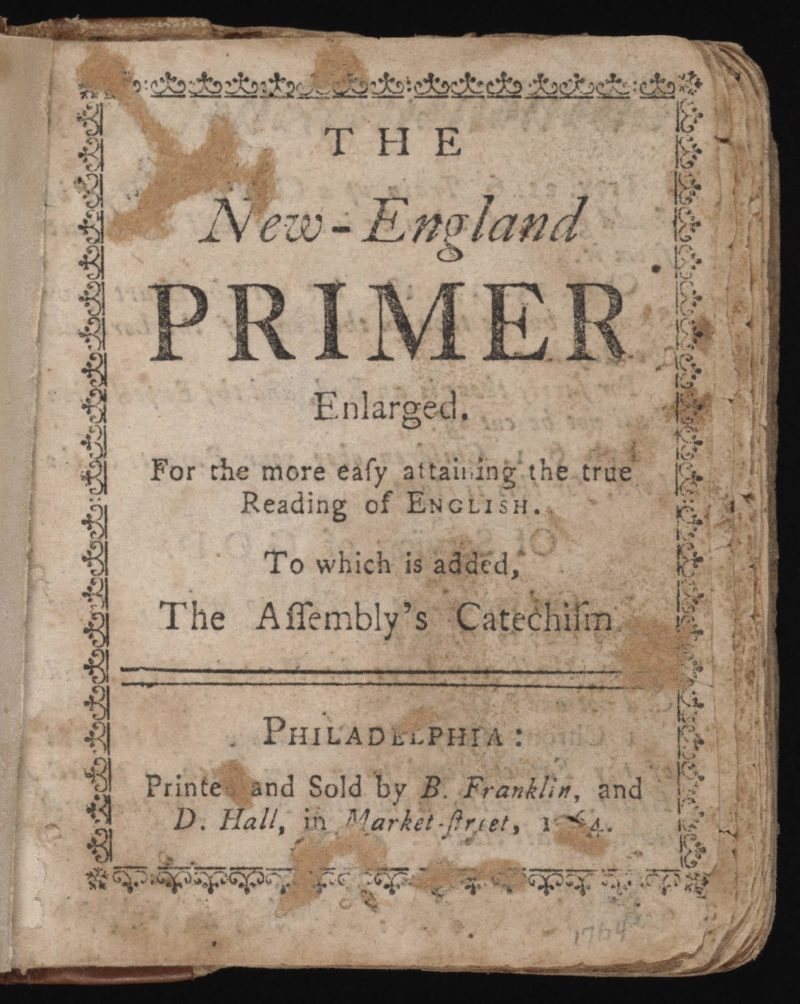 During the first 150 years as English colonies, children were home schooled. Parents took seriously their role to not only teach their children how to read, write, and cipher, but to cultivate virtuous character and Christian conscience for future citizenry. The Bible was their primer and children were catechized. John Locke characterized the reading curriculum of the American colonies as, “the ordinary road of Hornbook, Primer, Psalter, Testament, and Bible.”[iii] After home education, many colonial boys attended grammar school and were taught Latin, the language of scholarship, by their local pastor.
During the first 150 years as English colonies, children were home schooled. Parents took seriously their role to not only teach their children how to read, write, and cipher, but to cultivate virtuous character and Christian conscience for future citizenry. The Bible was their primer and children were catechized. John Locke characterized the reading curriculum of the American colonies as, “the ordinary road of Hornbook, Primer, Psalter, Testament, and Bible.”[iii] After home education, many colonial boys attended grammar school and were taught Latin, the language of scholarship, by their local pastor.
Wealthy families often sent their sons to England to receive a more formal, classical education in their well-established academies and universities. However, as colleges were founded in North America, others availed themselves of this new option. These choices would prove influential in the building of a new nation. It is providential that none of the Colonials schooled in England helped draft the Declaration of Independence, the U.S. Constitution, and the Bill of Rights. These great documents of liberty were the harvest of colonial education. John Adams, Thomas Jefferson, and Benjamin Franklin all had a part in drafting the Declaration of Independence (1776). James Madison, who was educated at the College of New Jersey in reformation theology, was the architect of the U.S. Constitution (1787) and the Bill of Rights (1789).
The Moses of America
George Washington, president of the Constitutional Convention, was home schooled on his family’s farm by his father, who died when George was only eleven years old. His stepbrother taught him for several years. His only formal education was a course of instruction in surveying. In 1775, Washington’s first official act as Commander-in-Chief of the Continental Army was to commission a Chaplain Corps to attend to the spiritual needs of his soldiers. As “Father of His Country,” he is often called the “Moses of America.” In his lifetime, Washington wrote over forty volumes of personal correspondence, in addition to a vast number of volumes of State Papers as President of the new nation. His letters are highly inspiring, and his understanding of Christian self- and civil government was biblical. His “Farewell Address” (1796) is a lesson on the importance of religion and morality in politics and of the need of the thirteen new states to maintain unity for the future health of the United States. It is considered one of the more important historical documents of the new Republic.
Noah Webster, the colonial attorney and schoolmaster who wrote the 1828 American Dictionary of the English Language, is called the “Father of American Education.” 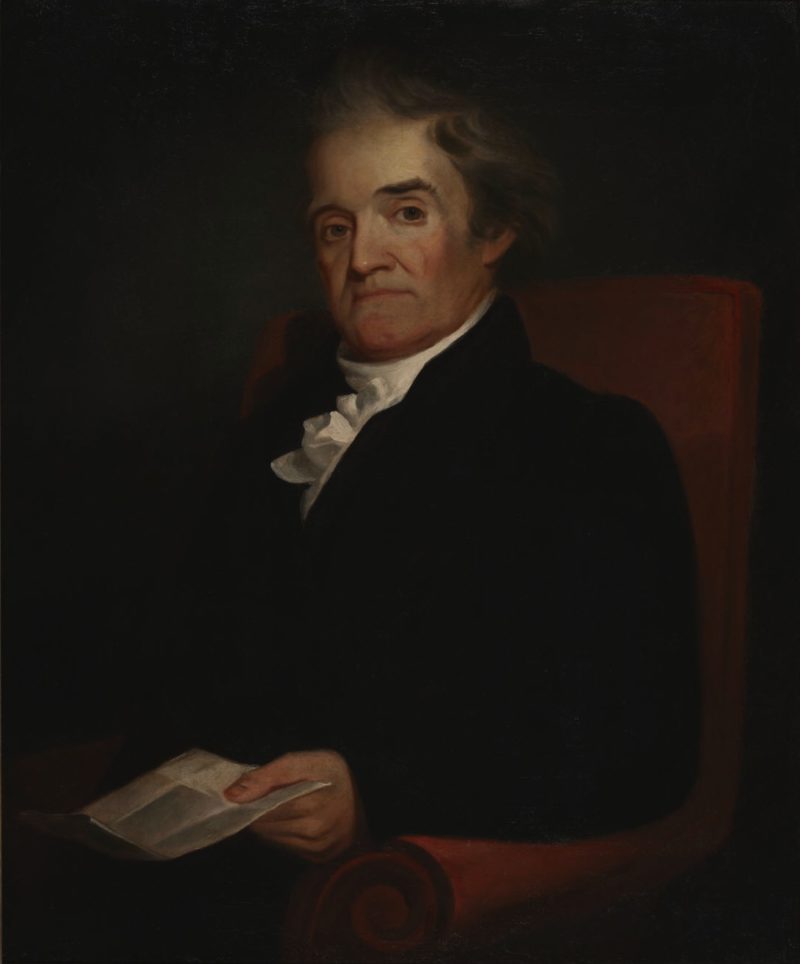 His scholarship set the standard in the new nation for many generations. Webster was also educated in the colonies. His father so prized education that he mortgaged the family farm to send Noah to Yale College! While reading for the law, he taught school and tutored youth for entrance into college. Later, he waged a long battle to see the U.S. Constitution ratified in all the new states. As he traveled, he stopped at Mt. Vernon to visit George Washington. While there, he chastised Washington for hiring tutors from England to teach Martha’s children!
His scholarship set the standard in the new nation for many generations. Webster was also educated in the colonies. His father so prized education that he mortgaged the family farm to send Noah to Yale College! While reading for the law, he taught school and tutored youth for entrance into college. Later, he waged a long battle to see the U.S. Constitution ratified in all the new states. As he traveled, he stopped at Mt. Vernon to visit George Washington. While there, he chastised Washington for hiring tutors from England to teach Martha’s children!
At the age of fifty, Webster tackled the writing of the first American dictionary, a task that required the mastery of 26 languages. He wanted to provide the new nation with her own dictionary. He understood that words are the building blocks of ideas. The colonies had fought eight years to win independence from England in order to be self-governing under God. Webster believed it was important to provide definitions that communicated the worldview of the U.S. Constitution and its underlying Christian principles of liberty and civil governance. In addition to researching the root meanings of words, he also researched words in the Hebrew and Greek lexicons and defined them according to how they were used in Scripture. Some of his entries have as many as twenty definitions based on the fine nuances of meaning found in the Bible! (Look up the word “serve.”[iv]) Webster’s 1828 is the only dictionary in the world that includes biblical meanings of words.
Noah Webster understood the power of words
Webster founded Amherst College and fought for universal education in the nation. More than any other of his day, he understood the power of words and the consequences of ideas! Several relevant Webster quotes include:
In my view, the Christian religion is the most important and one of the first things in which all children under a free government ought to be instructed. … No truth is more evident to my mind than that the Christian religion must be the basis of any government intended to secure the rights and privileges of a free people.[v]
Education is useless without the Bible.
When you become entitled to exercise the right of voting for public officers, let it be impressed on your mind that God commands you to choose for rulers, ‘just men who will rule in the fear of God.’ The preservation of [our] government depends on the faithful discharge of this Duty; if the citizens neglect their Duty and place unprincipled men in office, the government will soon be corrupted; laws will be made, not for the public good so much as for selfish or local purposes; corrupt or incompetent men will be appointed to execute the Laws; the public revenues will be squandered on unworthy men; and the rights of the citizen will be violated or disregarded. If [our] government fails to secure public prosperity and happiness, it must be because the citizens neglect the Divine Commands, and elect bad men to make and administer the Laws.[vi]
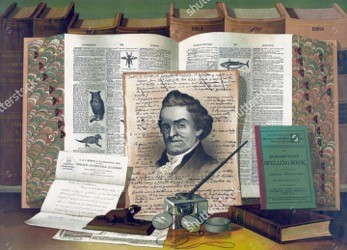 Besides his American dictionary, that took him over twenty years to complete, Webster authored the Blue-Backed Spelling Book, grammar and history texts, catechisms, and in his later years an American translation of the Bible (1833). As an educator, Webster was interested in the connection of the Bible to all fields of study and desired an accurate translation in English. Although it is still in print today, it did not receive wide acceptance due to the continued popularity of the King James Version. For Webster, it was the work that meant the most to him, and in 1834 he published a companion piece for parents to use with their children, “Value of the Bible and Excellence of the Christian Religion: For the Use of Families and Schools.” At the conclusion he wrote:
Besides his American dictionary, that took him over twenty years to complete, Webster authored the Blue-Backed Spelling Book, grammar and history texts, catechisms, and in his later years an American translation of the Bible (1833). As an educator, Webster was interested in the connection of the Bible to all fields of study and desired an accurate translation in English. Although it is still in print today, it did not receive wide acceptance due to the continued popularity of the King James Version. For Webster, it was the work that meant the most to him, and in 1834 he published a companion piece for parents to use with their children, “Value of the Bible and Excellence of the Christian Religion: For the Use of Families and Schools.” At the conclusion he wrote:
The Christian religion exalts the intellect and perfects the human character. — The sublime views of God and of his works, which the scriptures exhibit, have a wonderful effect in strengthening the intellect and expanding its powers. … Equally effectual are the scriptures in refining our ideas, by representations of purity and holiness of God. The more we know of God, the more just will be our concepts of what is ennobling in our own conduct; and every step we take in imitation of his perfections is an advance in elevation of character. This purity of mind, and this elevation and expansion of intellect are the beginnings of that ever increasing holiness, and that boundless enlargement of knowledge, which are to complete the character and the felicity of the children of God, in another world.
The record of colonial education in America, with the Bible as its primer, validates an important principle: the greatest foundation for building Christian culture is the knowledge of God’s Word and the ability to think and reason with its truths.
All Scripture is inspired by God and profitable for teaching, for reproof, for correction, for training in righteousness; so that the man of God may be adequate, equipped for every good work (2 Timothy 3:16,17).
- Elizabeth Youmans
Dr. Elizabeth Youmans is founder and director of Chyrsalis International. With 30 years of pioneering experience in Word-centered education at the local and national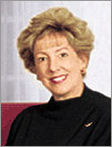 level, she now imparts the vision for educational reform internationally by laying teaching and learning on the foundation of Christ and His Word. In 2002 she launched the AMO curriculum, a program designed to help children in impoverished communities to flourish, and become servant leaders in their communities. Elizabeth is the mother of four grown children and grandmother of eight grandchildren.
level, she now imparts the vision for educational reform internationally by laying teaching and learning on the foundation of Christ and His Word. In 2002 she launched the AMO curriculum, a program designed to help children in impoverished communities to flourish, and become servant leaders in their communities. Elizabeth is the mother of four grown children and grandmother of eight grandchildren.
[i] William Penn’s vision for the education of children in the colony of Pennsylvania, Frame of Government, 1682
[ii] Letter to John Adams, October 4, 1790
[iii] Thoughts on Education, 1690
[iv] Free online at http://webstersdictionary1828.com
[v] From the Preface of the printed version of Webster’s 1828 Dictionary. You can access the dictionary at: webstersdictionary1828.com
[vi] History of United States, 1833 textbook by Noah Webster

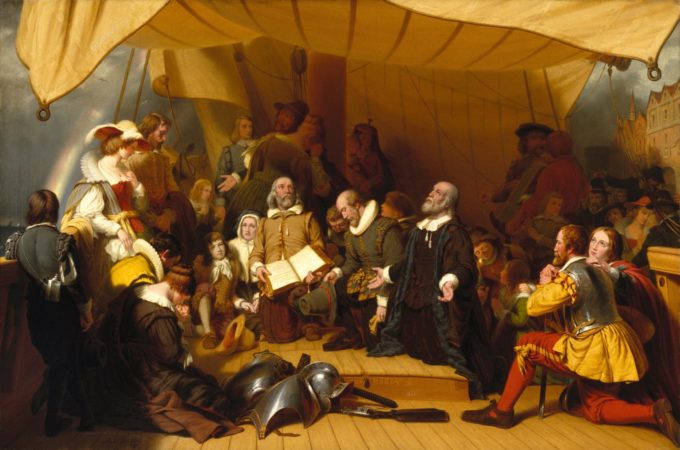





1 Comment
Penny Nicholas
June 22, 2017 - 12:18 pmThank you, Elizabeth! Today on “Point of View” with Kirby Anderson, Israel Wayne was interviewed and his comments dovetailed nicely with this article. I was listening in the car on the way home, then turned on the computer and saw your article. And , in the “small world” category, I’m meeting with Darrow in 90 minutes! 🙂